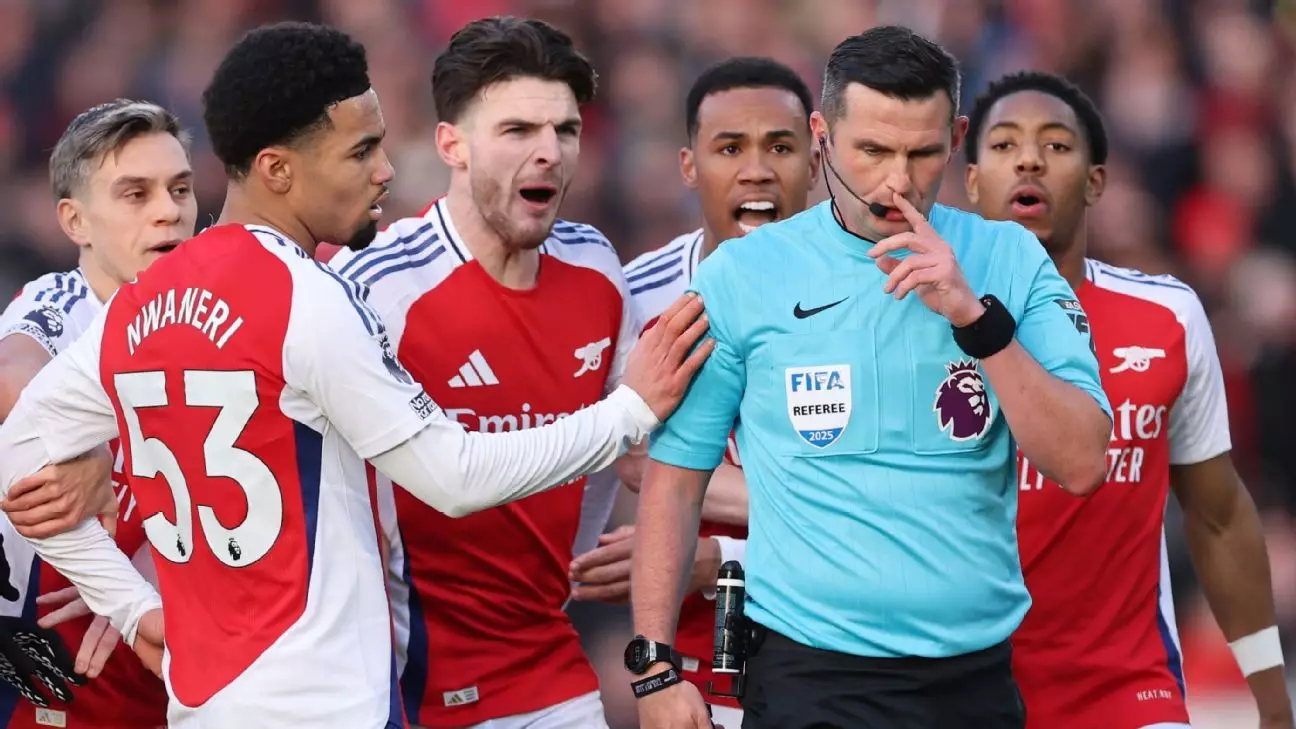Arsenal Football Club recently found itself at the center of controversy following an on-field incident during a Premier League match against Wolverhampton Wanderers. The club was fined £65,000 ($82,000) by the English Football Association (FA) after their players were deemed to have reacted improperly to a red card awarded to Myles Lewis-Skelly in the 43rd minute. This event not only highlights the issues surrounding player conduct on the pitch but also raises questions about the pressures faced by teams competing at the highest level.
In the aftermath of Lewis-Skelly’s dismissal, which incited frustration in manager Mikel Arteta, an alarming visual unfolded on the pitch. It became evident that tension boiled over as multiple Arsenal players surrounded referee Michael Oliver, an act that the FA interpreted as “improper behavior.” While Arsenal later secured a 1-0 victory, thanks to a goal from Riccardo Calafiori, the club’s initial response to the red card was anything but composed. In the heat of the moment, the actions of the players reflected a collective sentiment that is often seen in high-stakes matches—fueled by emotion and the strong desire to defend teammates.
In response to the fine, Arsenal strived to defend their players’ conduct by asserting that the interactions with the referee were civil. Their argument emphasized that the players did not exhibit aggressive behavior, were not gesticulating wildly, nor acting in a manner deemed offensive. However, the FA’s counter-argument painted a different picture, indicating that there were instances where “nine AFC players were in very close proximity to the referee.” This suggests not merely a defensive move but a potential undermining of the referee’s authority. The FA further stated that the subsequent overturning of Lewis-Skelly’s red card could not mitigate the improper behavior exhibited during the incident, underscoring the fact that regulatory bodies are keen to maintain order and respect for officials.
The Bigger Picture: Impact on Team Dynamics
Arsenal’s disciplinary record this season has also come under scrutiny, with the team accruing the highest number of red cards in the Premier League. This statistic highlights a broader concern regarding the team’s ability to maintain composure under pressure. Arteta’s squad finds itself seven points adrift of league leaders Liverpool, furiously competing for a spot at the top. However, the recent incident raises critical questions: Can a team poised for championship contention afford to indulge in such reactive behaviors? What impact does this have on team dynamics and morale?
Ultimately, the £65,000 fine serves as a stark reminder that every action on the pitch is scrutinized, especially when a team’s ambitions are high. For Arsenal, it’s not just about winning matches but also about understanding the delicate balance between fierce competition and sportsmanship, a lesson that will undoubtedly shape their approach as they move forward in the season.

